Coaches and players defend youth tackle football in face of statewide elimination
Massachusetts lawmaker failed in their attempt to tackle youth football head injuries
Credit: Caitlin Newton
Massachusetts state legislator Paul Schmid recently proposed a “No Hit” bill to eliminate youth tackle football. Senior varsity football captain Mason Bolivar believes he wouldn’t have been as interested in high school football if it weren’t for playing tackle football at the youth level. “If [the state took tackling] away, it [would] just kill high school football.”
November 25, 2019
State lawmaker Paul Schmid recently proposed a “NO HITS” bill that would ban tackle football before players reach the eighth grade. Differing opinions ensued from the Massachusetts State House, where the bill was proposed and subsequently shut down. The “No Hit” bill would have made Massachusetts the first state to ban tackle football before the end of middle school.
Having coached both high school and youth football firsthand, Wayland varsity head football coach Scott Parseghian firmly believes the bill would have intruded upon a parent’s decision to let their kids play a contact sport.
“I think it’s a ‘parents’ decision, [not] a statewide decision,” Scott Parseghian said. “I was really disappointed that [the state was] trying to step in.”
Todd Lyons, the president of Wayland-Weston Youth Football, also disagrees with Schmid’s bill.
“We’re a youth football organization, and we support parents’ decisions to decide upon the risks and benefits of a sport that their child may want to participate in,” Lyons said.
The main concern the bill would have addressed was that the state had too many concussions caused by youth tackle football, but both coaches and players claim this was not the case.
“From coaching [my kids] Dante [Parseghian] and Damien [Parseghian] since they were in second grade, there [are] no hits at that level,” Scott Parseghian said. “They run into each other and fall over, and that’s about it.”
Scott Parseghian attributes what he says was a minimal number of injuries at the second and third grade level to a lack of skill.
“There were no hits where you said, ‘Ooph’,” Scott Parseghian said.
Lyons acknowledges that the bill does minimize the likelihood of concussion, but he remains opposed to the idea.
“The proponents of the bill [say] there are benefits [that] would eliminate the total number of years that a child would be exposed to head injuries,” Lyons said.
Lyons’ youth football program, however, has already taken head injuries into account before the bill proposal.
“A lot of the concern in sports around head injuries has really forced us to look at how we can make the game safer,” Lyons said. “We have reduced the number of hits in practice and the amount of contact time.”
An increased amount of awareness and education about head injuries allowed youth football programs in towns such as Wayland to combat possible concussions.
“We use tackling dummies, [and we’ve] made changes in the rules in terms of we don’t have kickoffs anymore,” Lyons said. “We have also done a lot of coach education and training around the recognition and management of head injuries.”
Despite the concern surrounding football, concussions were also caused by other sports. Soccer, hockey and lacrosse are all big contributors to head injuries, but the bill centers solely around football.
“The things I’m seeing with concussions are, ‘I hit my head on the door’ or, ‘I walked into a crew boat’ or, ‘I fell down the stairs.’ It’s ridiculous,” Scott Parseghian said. “Those things are happening to cause concussions, [and] second, third and fourth grade tackle football is not going to. Can it? Sure, but for the most part, that is not the case.”
Although it’s not very common, there were some head injuries that occurred in tackle football at a young age. Junior Jett Peter was allowed to play youth football until he ultimately hurt his head, but Peter still believes it should be up to parents to choose whether or not their child would be exposed to a contact sport.
“It should be the parents who essentially choose if their kids can participate in the sport or not,” Peter said. “I feel like there are some risks with the contact in football, but usually at that level, they are not as aggressive.”
Although he stopped playing after his injury, he didn’t believe the bill would have affected his decision to continue playing or not.
“I got a concussion in third grade when I collided with a Weston player during Wayland-Weston Pop Warner,” Peter said. “My dad, who was the coach, made me stop because he didn’t want me to get any more injured.”
Senior varsity football player Dante Parseghian believes that tackling is an important skill to learn early on and that it could only be built upon as athletes got to a higher level in the sport.
“Kids should be able to tackle in youth because once you get to the high school level, there are various disadvantages if you don’t know how to tackle because it’s not something that just comes naturally,” Dante Parseghian said.
Along with Dante Parseghian, senior varsity football captain Mason Bolivar agrees that a lack of tackle opportunities at the youth level could have had an impact on play at the high school level.
“If [the state took tackling] away, it [would] just kill high school football because [for] kids like me who have played football since a very young age, [we] would go to the high school games, and [I would] want to be out there,” Bolivar said. “I think if they were to take away tackle football at the youth level, it would kind of kill that [excitement for the sport], and you wouldn’t see as much high school football.”
Junior varsity football player Nick Dresens agreed with Bolivar and believes that the bill would have lowered the level of play significantly.
“I 100% agree I would be a worse player because I wouldn’t have had the time to develop as a tackler to tackle safely, which is what [youth football] teaches.” Dresens said.
Lyons notes that the bill wouldn’t create a huge change for the youth football program. The program already felt as though they have made youth football much safer by waiting to start tackle until sixth grade and have elementary-aged kids play flag football.
“A lot of the concern in sports around head injuries has really forced us to look at how we can make the game safer,” Lyons said. “We have reduced the number of hits in [youth] practices and changed how we teach tackling, including new techniques to take the head out of hitting.”
The Wayland High School football team had altered their practices so that they were non-contact. Scott Parseghian made the decision because he wanted to minimize the amount of injuries during the season. In the past three years, Wayland football had not had a single live tackle practice. Despite this change, the team still made it to the sectional finals last fall and finished off its regular season with a winning record and the No. 3 seed in its playoff bracket.
“Here at the high school, we don’t live tackle at all during the week,” Scott Parseghian said. “We’ve adopted ‘The Dartmouth Way’: They don’t tackle at all to prevent the wear and tear on the body and concussions from happening any time you’re not playing in a game.”
Since Wayland High School is considered small compared to surrounding high schools, there aren’t multiple backups for every position on the field. Because of this, injury prevention was even more important for the Warriors.
“If we get an injury, it does hurt, [and] there’s a dropoff usually from one to two,” Scott Parseghian said. “Maybe a couple of positions have a backup where he would start on any other team, but our starters that are out there for a reason. Knock on wood, we’ve had some really good luck with injuries this year, [and] we’ve had no concussions this year.”
This year, the freshman football team had 20 players on it, but only six of them had ever played youth football.
“Unfortunately, [the freshman team] did not [have a great season], which is unfortunately due to injuries, but concussions aren’t the problem: it’s bones and ankles and stuff like that,” Scott Parseghian said. “They’re missing a couple of key players that could help them to have definitely won a couple of more games.”
Scott Parseghian believes it’s never too late to pick up the sport, and he has seen many athletes pick it up later in high school over the course of his coaching career.
“There’s been a number of kids over my 19 years of coaching who have come out junior and senior year and made an impact,” Scott Parseghian said. “If you’re an athlete, [and] if you really desire to make yourself better, we can definitely help you become a football player.”
Because there are so many positions in football, it is possible for kids to pick it up without having a ton of youth experience.
“We have [senior] Michael Wegerbauer, who came out for senior year football, and he’s doing a great job for us playing special teams,” Scott said.
Scott Parseghian can relate to the players who didn’t start playing when they were little because he didn’t begin his own football career until he was in eighth grade.
“I tell parents all the time that I don’t think you need to be playing from second or third grade, but some kids want to, and I think any sport is great for a young kid to be doing; it doesn’t matter what it is,” Scott Parseghian said.
According to Scott Parseghian, the loss of tackle football would have been unfortunate, but playing flag football would still have been a great opportunity.
“Any time a kid can have a football in their hands, I’ll take it,” Scott Parseghian said. “I’m on the youth football board with [Lyons, and to] have some intro into the game of tackle [does benefit players] before they come here.”
The taking away of tackle football wasn’t the only aspect of the “No Hit” bill that frustrated the youth football program. Scott Parseghian also believes in the lessons that football could teach his players, both on and off the field. He emphasized how all 11 people on the field have to be on the same page for a play to work, which he viewed as an important aspect of the sport.
“There’s a lot of good things about football: the camaraderie, the goal setting, you could go on and on.” Scott Parseghian said. “Football is the one [sport] where you call a play and you have to work together, and that’s something that is a life experience.”
Lyons furthers that the elimination of youth tackle football leaves a vacuum for potentially less beneficial activities to fill.
“There are a million kids that play football every year, so for many of them to suddenly not have a sport to play, what other activities are they going to be doing?” Lyons said. “Are they going to be playing PlayStation and Xbox? We lose all of the benefits that we know sports have.”











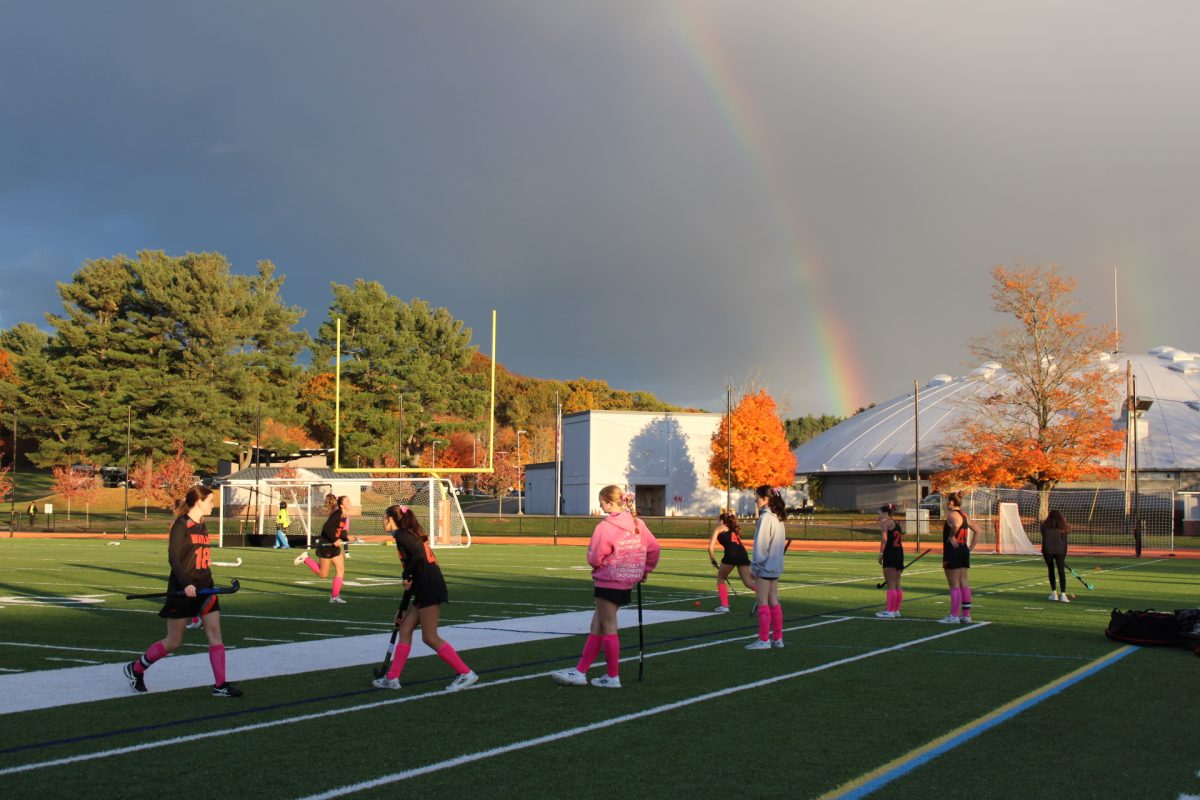
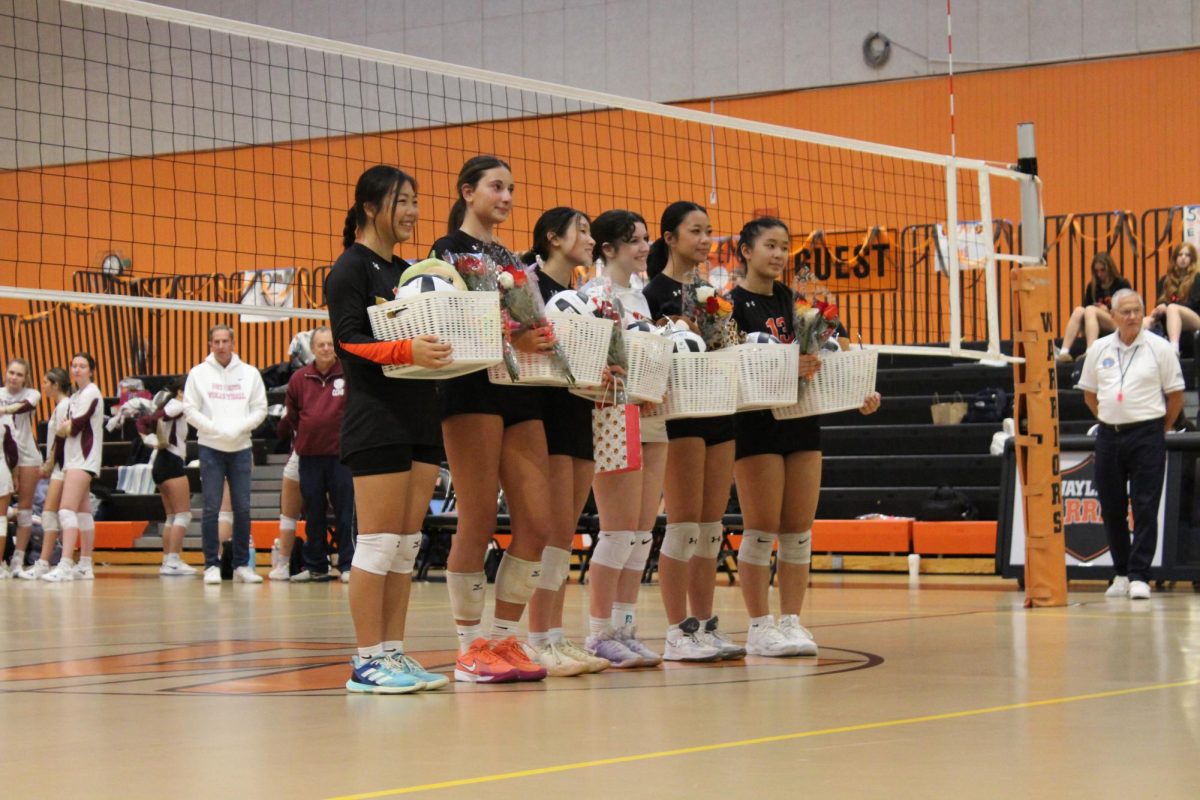
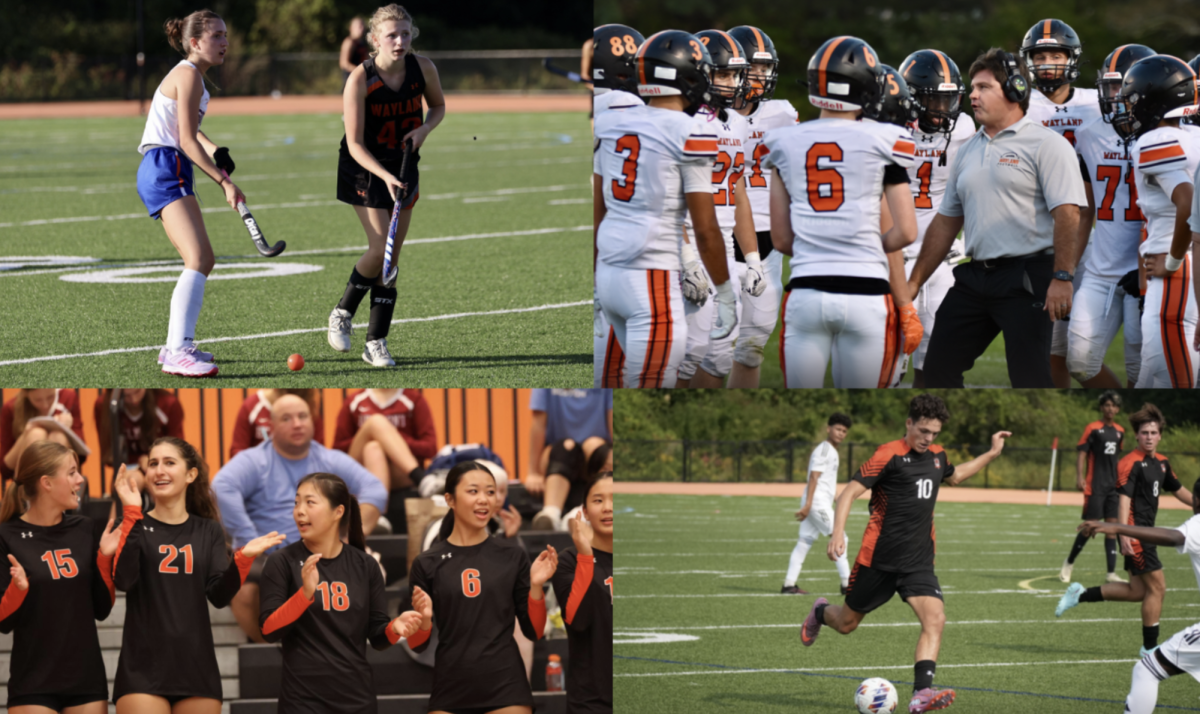
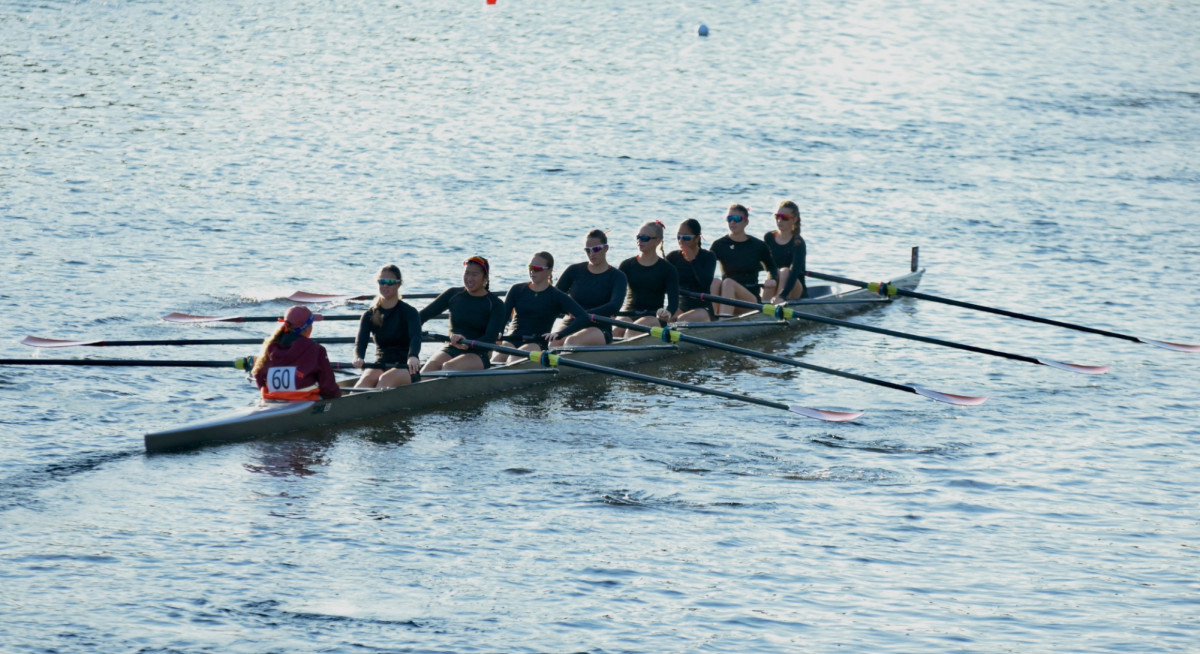
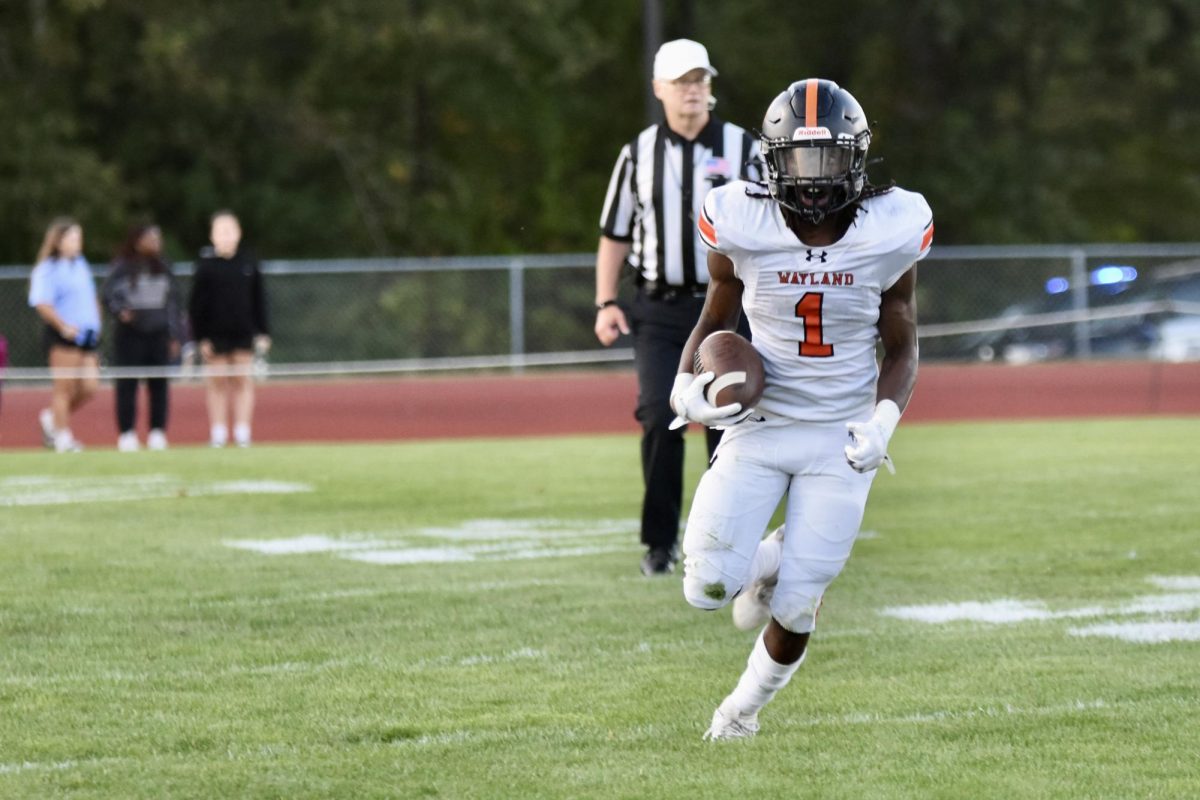











![Massachusetts state legislator Paul Schmid recently proposed a "No Hit" bill to eliminate youth tackle football. Senior varsity football captain Mason Bolivar believes he wouldn't have been as interested in high school football if it weren't for playing tackle football at the youth level. "If [the state took tackling] away, it [would] just kill high school football."](https://waylandstudentpress.com/wp-content/uploads/2019/11/hPTFJ7xNxzRTOzitnlnJ2CWmKv1fYcPCtB8jBiR3-900x600.jpg)

